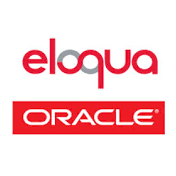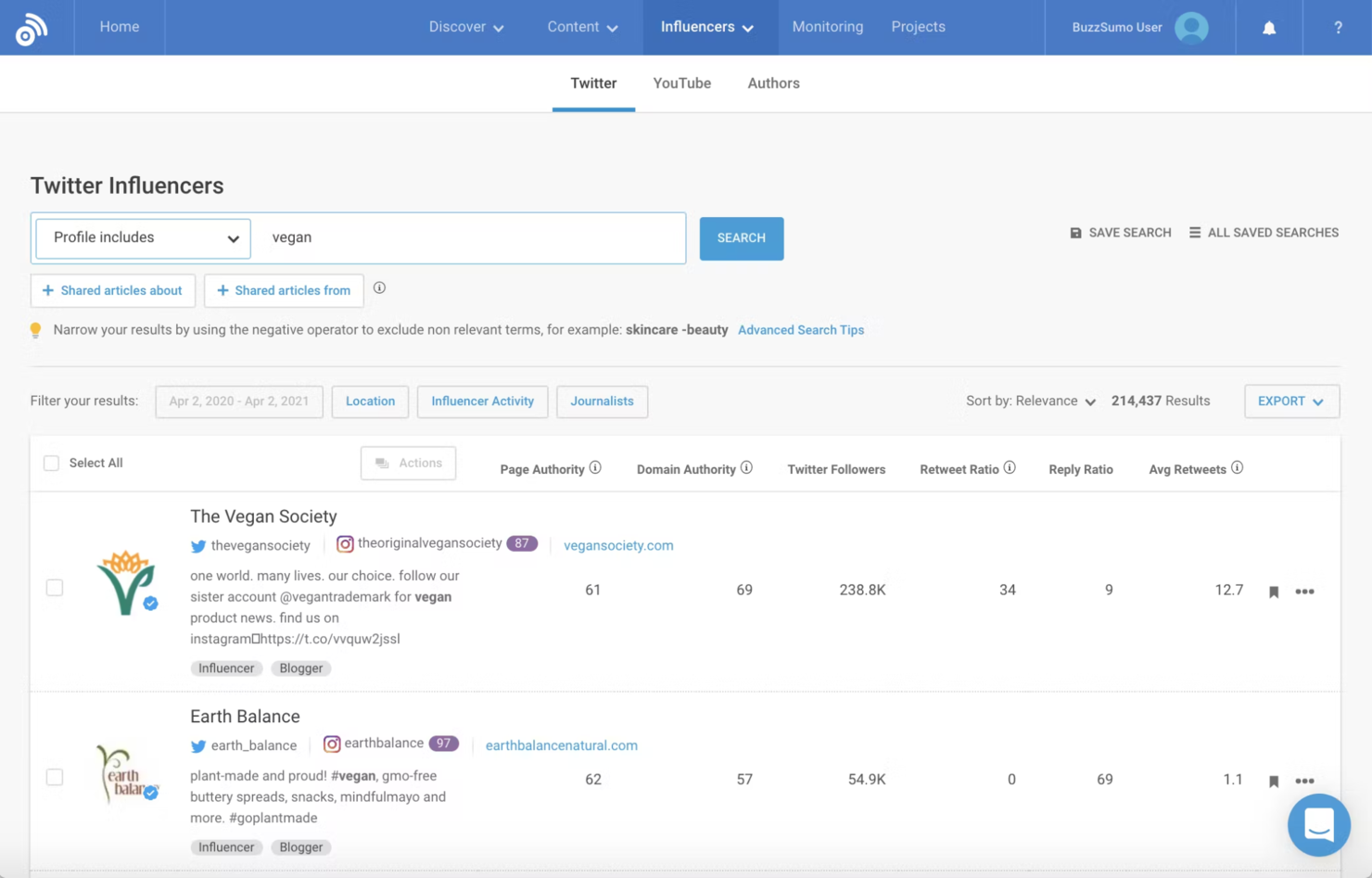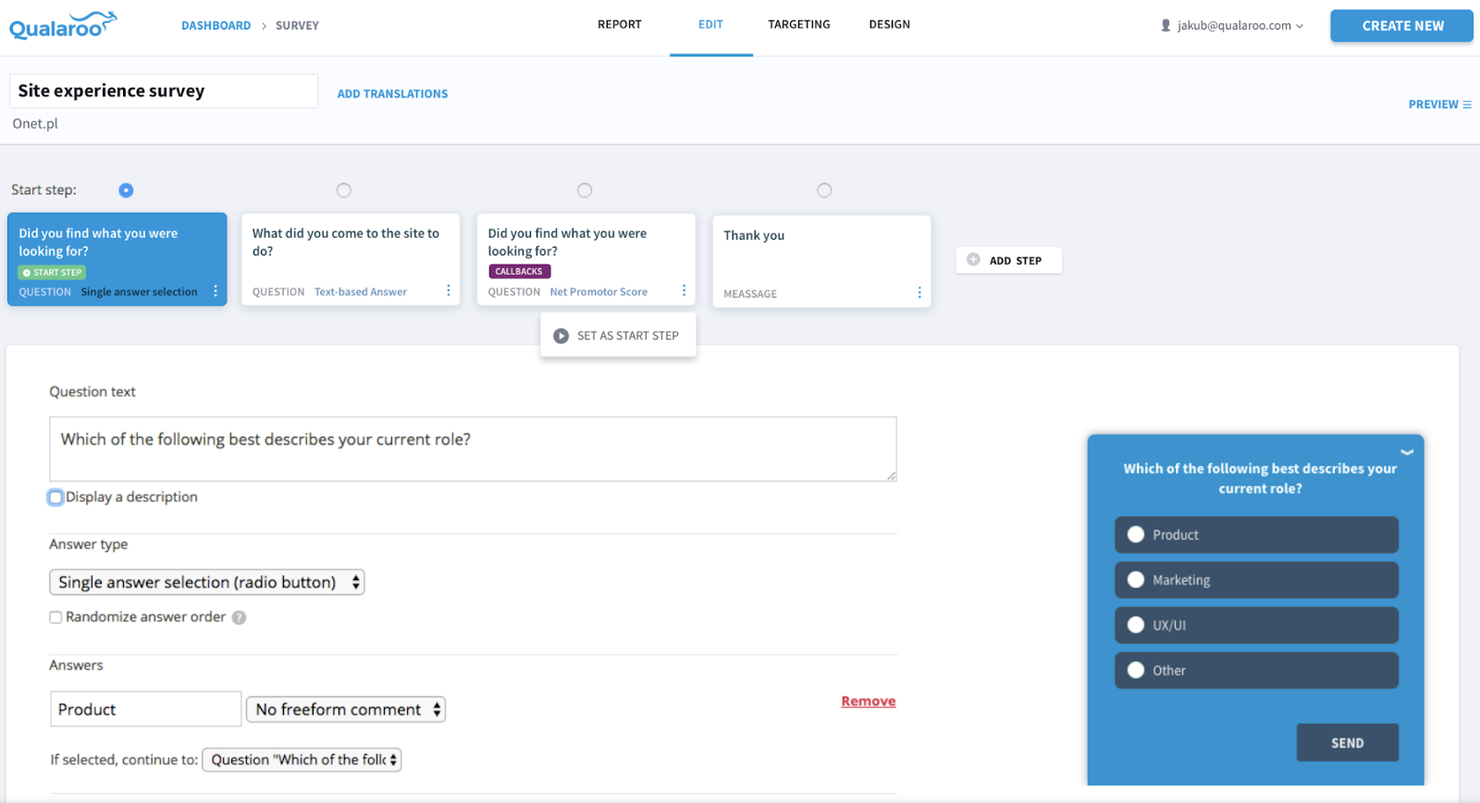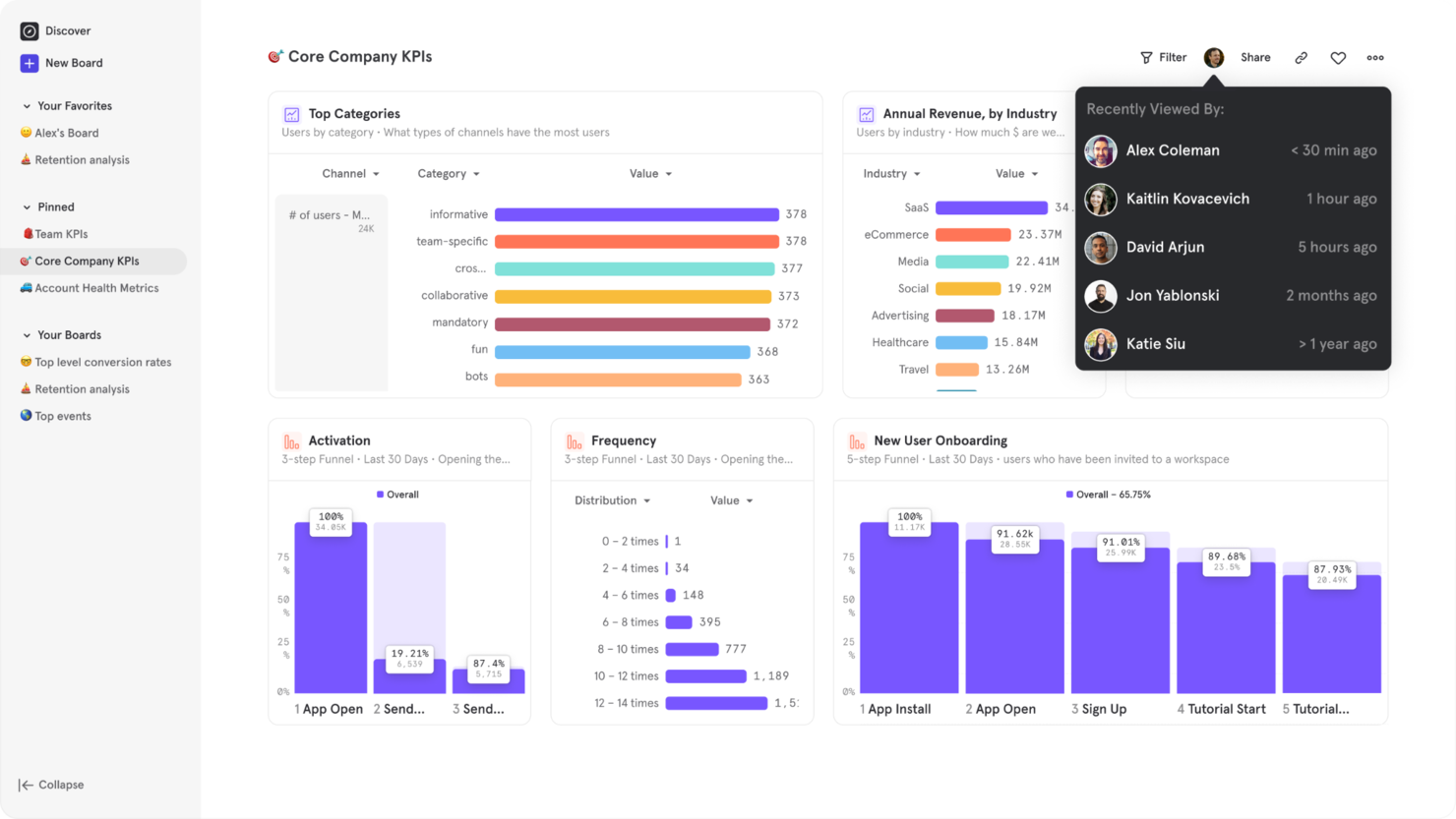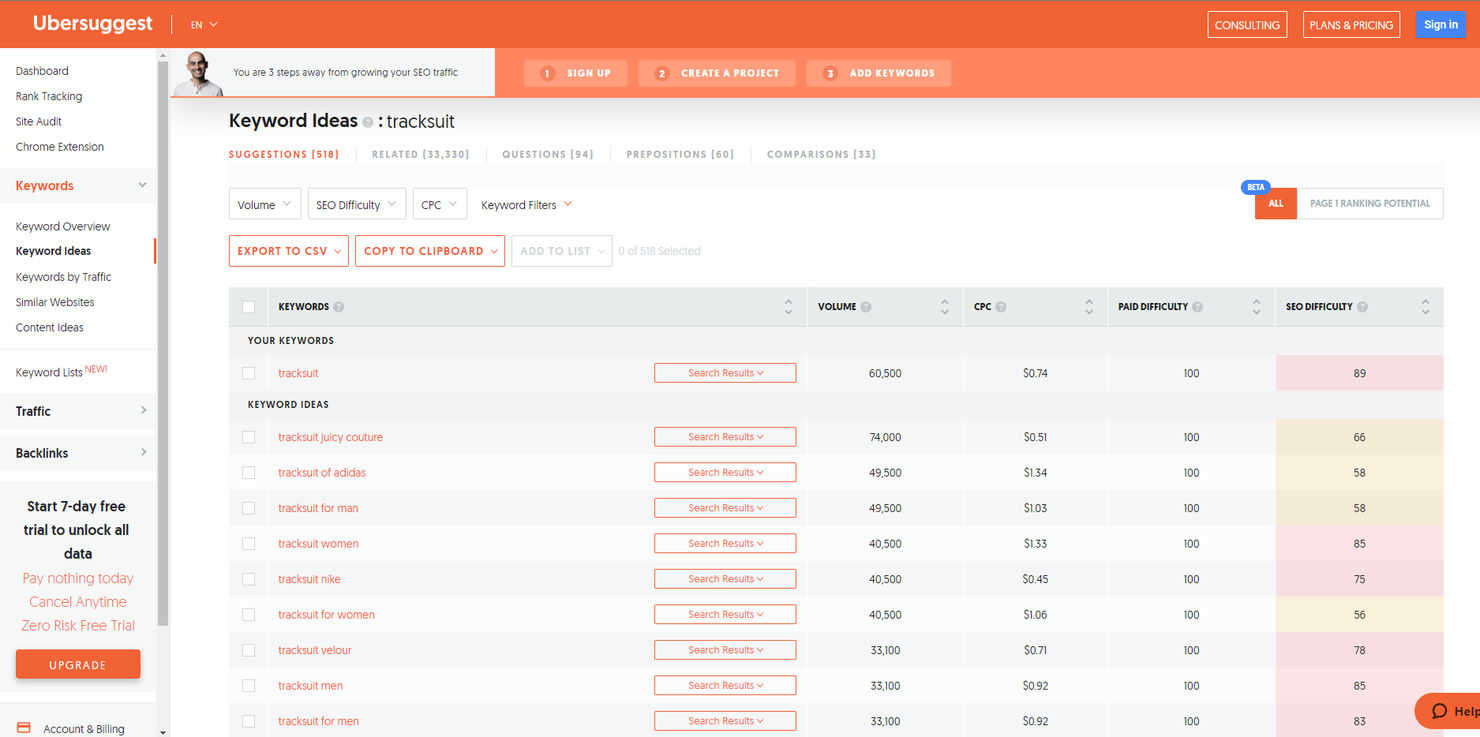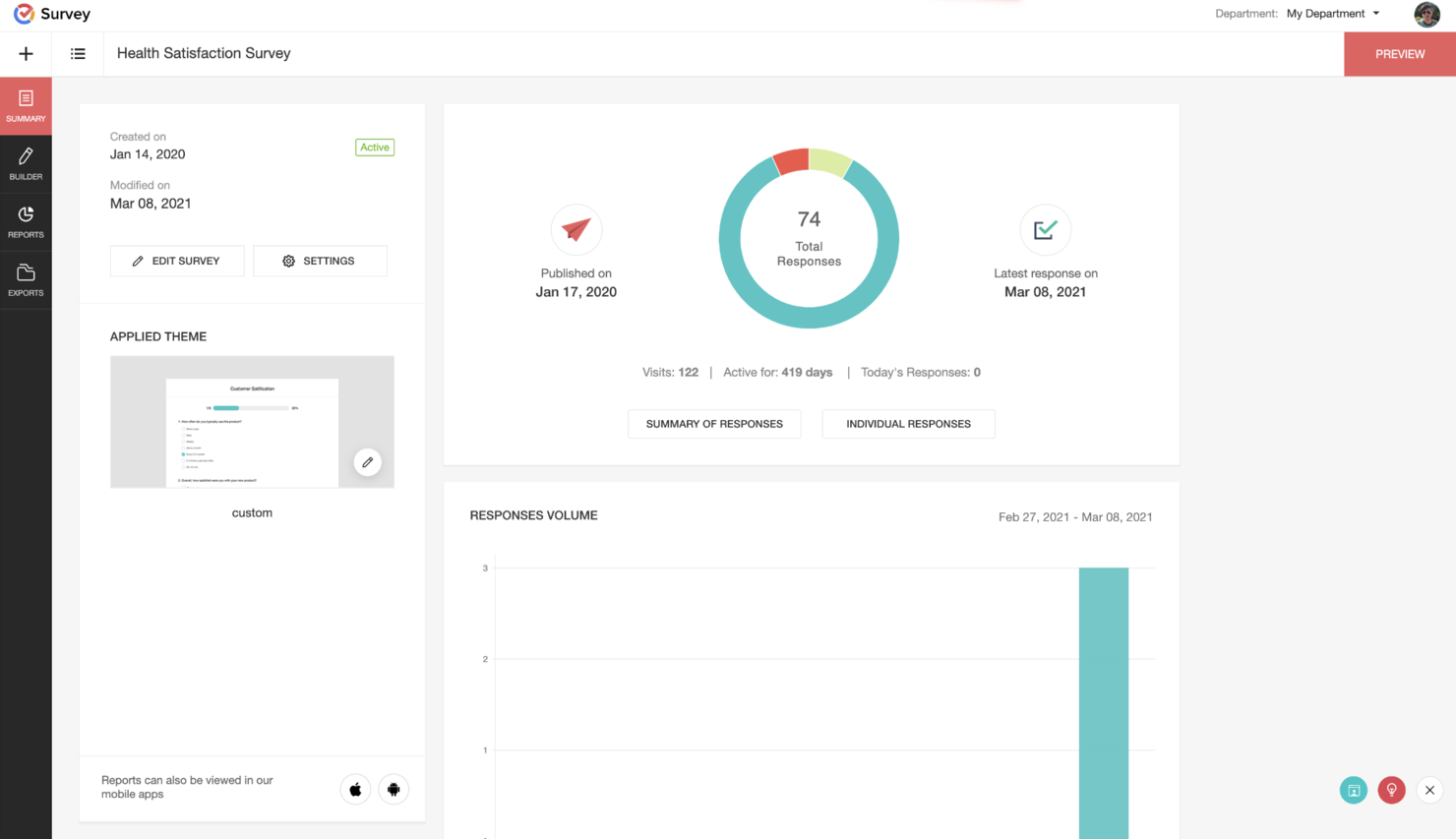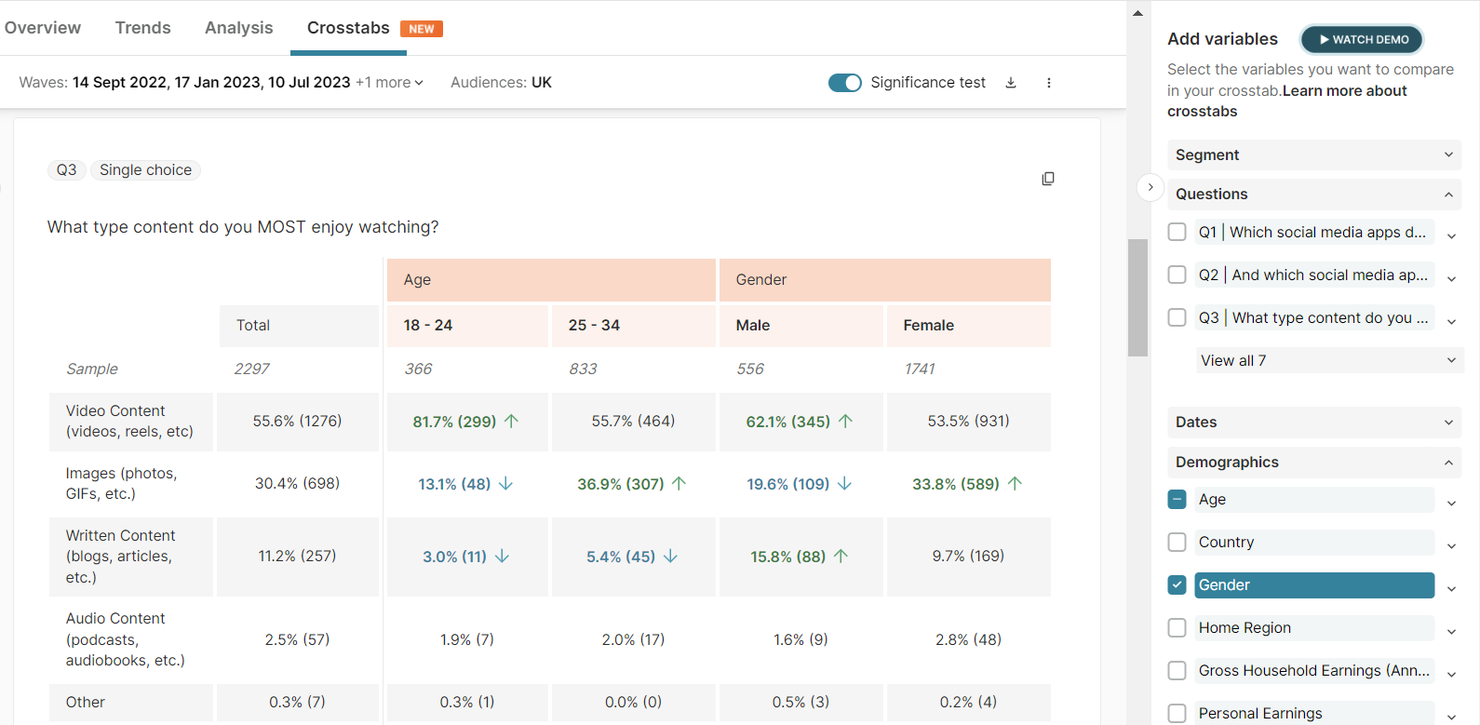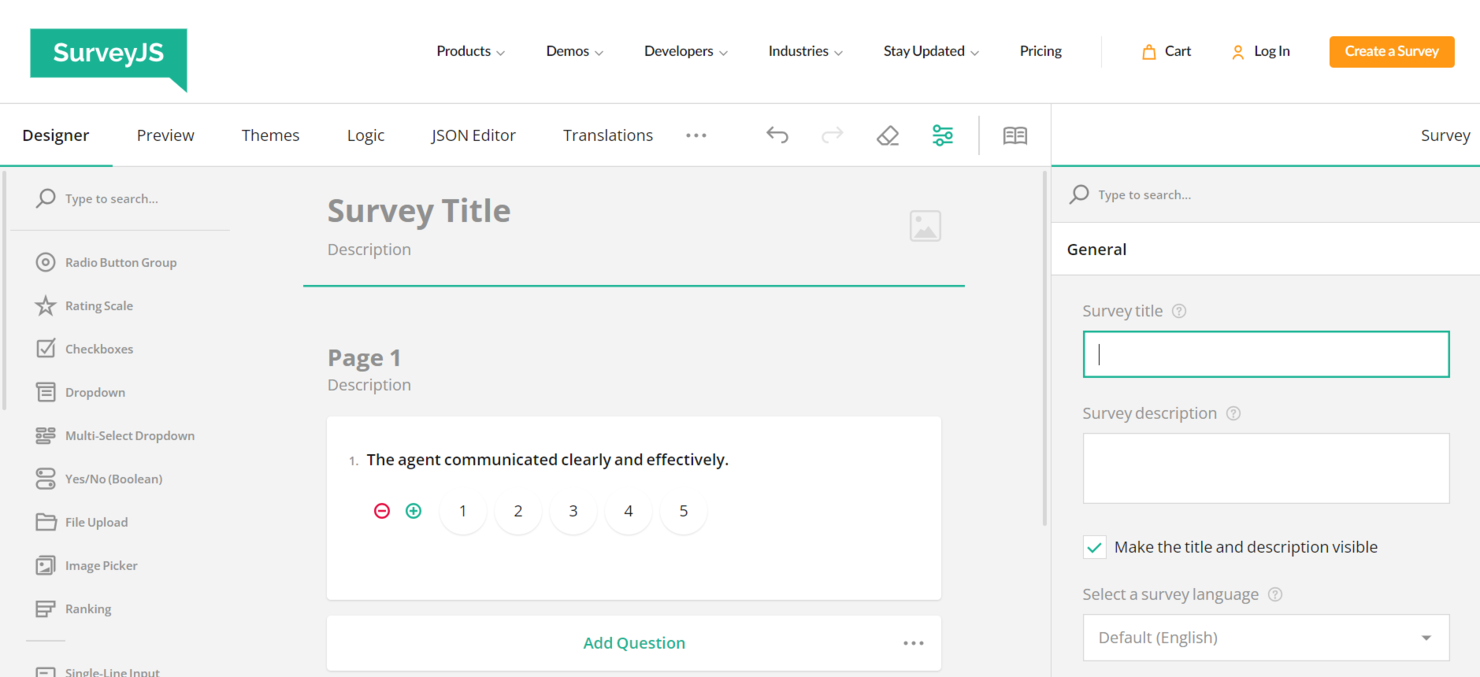10 Best Market Research Software Shortlist
Here's my pick of the 10 best software from the 20 tools reviewed.
Our one-on-one guidance will help you find the perfect fit.
Market research software is a valuable asset for any company. With the right software, teams can gain deep insights into customer behavior and make data-driven decisions. However, finding the right market research software can be challenging, especially with so many available options.
Using my extensive experience with marketing software, I tested and compared several of the top market research software available. From there, I compiled my results into in-depth reviews to help you find the best software for your unique needs. I’m confident you’ll discover your next market research software in the list below.
Why Trust Our Software Reviews
We’ve been testing and reviewing marketing software since 2022. As marketing managers ourselves, we know how critical and difficult it is to make the right decision when selecting software. We invest in deep research to help our audience make better software purchasing decisions.
We’ve tested more than 2,000 tools for different marketing use cases and written over 1,000 comprehensive software reviews. Learn how we stay transparent & our software review methodology.
Best Market Research Software Summary
We’ve investigated the pricing and availability of free trials and demo versions so you can make a much simpler side-by-side comparison.
| Tool | Best For | Trial Info | Price | ||
|---|---|---|---|---|---|
| 1 | Best for content insights | Free trial available | From $159/month (billed annually) | Website | |
| 2 | Best for in-context surveys | Free plan available | From $39.99/month (billed annually) | Website | |
| 3 | Best for qualitative data analysis | Free trial available | From $30/month | Website | |
| 4 | Best for real-time brand monitoring | 7-day free trial available | From $49/month (billed annually) | Website | |
| 5 | Best for AI-powered insights | Free plan + demo available | Pricing upon request | Website | |
| 6 | Best for free keyword research | Not available | From $12/user/month | Website | |
| 7 | Best for extensive templates | Free plan available | From $7.42/month (billed annually) | Website | |
| 8 | Best for continuous insights | Free demo available | Pricing upon request | Website | |
| 9 | Best for engaging surveys | Free plan available | From $29/user/month | Website | |
| 10 | Best for customizable surveys | Free plan available | From $555/user/year | Website |
-

Eloqua
Visit WebsiteThis is an aggregated rating for this tool including ratings from Crozdesk users and ratings from other sites.4.3 -

Optimizely
Visit WebsiteThis is an aggregated rating for this tool including ratings from Crozdesk users and ratings from other sites.4.2 -

Uberflip
Visit WebsiteThis is an aggregated rating for this tool including ratings from Crozdesk users and ratings from other sites.4.3
Best Market Research Software Reviews
We’ve investigated the pricing and availability of free trials and demo versions so you can make a much simpler side-by-side comparison.
BuzzSumo is a content research and media monitoring tool for marketers, PR professionals, and content creators. It helps users discover trending content, identify key influencers, and monitor online mentions.
Why I picked BuzzSumo: It offers content discovery tools that scan billions of articles and social posts, helping you find relevant and high-performing content ideas. You can track real-time trends and set up alerts for your brand mentions. Its influencer identification feature allows your team to connect with industry leaders. Additionally, the comprehensive media monitoring tools ensure you stay informed about competitor activities and industry updates.
Standout features & integrations:
Features include content analysis, trending feeds, question analysis, and custom alerts. You can also leverage its Chrome extension for on-the-go research and the API for automation.
Integrations include Slack, Zapier, Twitter, YouTube, Facebook, and TikTok.
Pros and cons
Pros:
- Influencer identification
- Real-time trend analysis
- Extensive content database
Cons:
- No direct customer support for basic plans
- Steep learning curve
Qualaroo offers a user research and customer feedback platform for real-time insights through customizable surveys. It's used by businesses to enhance user experience and improve conversion rates through direct feedback from website or app visitors.
Why I picked Qualaroo: Qualaroo's Nudge™ technology enables targeted questioning without disrupting the user experience, allowing you to gather actionable insights effectively. Customizable surveys and advanced user targeting ensure you can tailor questions to specific user behaviors and demographics. AI-powered sentiment analysis helps your team quickly understand feedback trends.
Standout features & integrations:
Features include customizable survey templates, advanced user targeting, and AI sentiment analysis powered by IBM Watson. You can also use Nudge™ technology for real-time feedback without being intrusive. Surveys can be easily embedded on websites or apps, enhancing user experience and conversion rates.
Integrations include Mailchimp, Salesforce, Google Analytics, and Google Tag Manager.
Pros and cons
Pros:
- Real-time insights
- Advanced user targeting
- Easy installation
Cons:
- Limited offline support
- Requires learning curve
Dovetail is a customer insights platform to help product managers, designers, researchers, sales teams, and customer success professionals centralize and analyze customer knowledge. It quickly transforms user feedback, calls, and documents into actionable insights, enabling data-driven decision-making.
Why I picked Dovetail: The platform offers features that help you organize and analyze customer insights efficiently. Its AI-powered insights can convert vast amounts of feedback into meaningful data. Dovetail also provides data privacy protection and integration with other tools, ensuring your insights are secure. Its ability to standardize research processes across teams makes it a valuable asset for fostering a customer-centric culture in your organization.
Standout features & integrations:
Features include AI-driven insights, fast analysis of customer data, and data privacy protection. Your team can also benefit from tools for organizing insights and integrating with other platforms. These features help centralize the process of transforming feedback into actionable insights.
Integrations include Workday, SAP SuccessFactors, ADP, Oracle HCM, BambooHR, Microsoft Dynamics 365, Salesforce, ServiceNow, Google Workspace, and Slack.
Pros and cons
Pros:
- Standardizes research processes
- AI-powered insights
- Fast data analysis
Cons:
- Initial setup complexity
- Limited offline access
BrandMentions monitors brand mentions across various online platforms, including social media, news, blogs, and videos. It caters primarily to businesses and marketing professionals, helping them track brand reputation and gain insights into marketing strategies.
Why I picked BrandMentions: It offers features like real-time alerts and sentiment analysis, allowing you to monitor brand mentions efficiently. You can engage with customers, track competitors, and manage your brand’s online presence. Its faster detection of mentions compared to other tools enhances your ability to stay updated. The platform's extensive coverage helps you measure the success of your marketing campaigns effectively.
Standout features & integrations:
Features include real-time alerts, sentiment analysis, and media monitoring. You can track brand mentions across social media, news, blogs, and videos. The tool also allows you to export results easily for reporting purposes.
Integrations include Facebook, Twitter, Instagram, LinkedIn, YouTube, Reddit, Pinterest, TikTok, Google News, and Quora.
Pros and cons
Pros:
- Easy to use
- Sentiment analysis
- Real-time alerts
Cons:
- Occasional bugs
- Learning curve
XEBO.ai offers an AI-powered digital research product to enhance customer and employee experiences. It serves a diverse user base across industries like banking, healthcare, and FMCG, focusing on gathering and analyzing feedback.
Why I picked XEBO.ai: XEBO.ai provides customizable surveys with over 20 question types, enabling your team to gather detailed feedback. The platform's sentiment and predictive analysis tools help you understand and anticipate customer needs. Local data hosting and on-premise setup options ensure your data is secure and compliant with local regulations. Additionally, the 24/7 localized support means your team can get help when required.
Standout features & integrations:
Features include customizable surveys, sentiment analysis, and predictive analysis. You can measure customer satisfaction and loyalty with Net Promoter Score and customer journey benchmarking tools. The platform also offers local data hosting and on-premise setups for better data control.
Integrations include popular CRM and ERP systems, enhancing your team’s ability to automate tasks and improve efficiency.
Pros and cons
Pros:
- Strong security certifications
- 24/7 localized support
- On-premise setup option
Cons:
- Can be resource-intensive
- Limited customization in some areas
Ubersuggest is a free SEO and keyword research tool created for digital marketers, SEO professionals, content creators, and small to medium-sized businesses. It provides key research functions such as competitor analysis, keyword suggestions, content ideas, backlink data, and performance tracking.
Why I picked Ubersuggest: You can perform extensive keyword analysis and get detailed SEO optimization tips. The tool offers market research insights into your competitors' strategies, helping you develop more effective content marketing plans. It also tracks your website's performance, providing actionable data to boost your search engine rankings and drive organic traffic.
Standout features & integrations:
Features include keyword suggestions, site audits, and backlink data. Your team can use these features to enhance SEO strategies, generate content ideas, and track website performance. The tool also provides competitor analysis to help you stay ahead in the market.
Integrations include Google Analytics, Google Search Console, and Google Ads.
Pros and cons
Pros:
- Performance tracking
- Competitor analysis
- Detailed site audits
Cons:
- Limited customer support
- Learning curve for beginners
Zoho Survey is an online survey and questionnaire tool for individuals and businesses to collect feedback and insights from their target audience. It primarily serves marketers, researchers, and HR teams by facilitating survey creation, distribution, and analysis.
Why I picked Zoho Survey: It offers an intuitive drag-and-drop interface that makes survey creation easy for your team. With real-time reporting, you can quickly analyze responses and gain insights. Customizable templates help you build surveys that fit your specific needs. Additionally, advanced features like skip logic and piping ensure that your surveys are dynamic and engaging.
Standout features & integrations:
Features include customizable templates, real-time reporting, and advanced survey logic like skip logic and piping. You can easily create and distribute surveys with its drag-and-drop interface. The platform also supports multiple languages, making it versatile for global teams.
Integrations include Asana, Dropbox, Google Drive, Google Sheets, Mailchimp, Microsoft Teams, Salesforce, Slack, Trello, and Zoho Projects.
Pros and cons
Pros:
- Easy drag-and-drop interface
- Multiple language support
- Advanced survey logic
Cons:
- Requires internet connection
- Limited customer support
Attest is a consumer research platform that simplifies the research process for marketers and insights professionals. It provides access to a global audience and offers tools for brand tracking, consumer profiling, creative testing, market analysis, and new product development.
Why I picked Attest: The platform features an intuitive survey builder that delivers quick results, supported by strong data quality measures. You can easily track trends, compare responses, and gain actionable insights through its interactive dashboard. Attest also provides expert advice and templates to help you conduct effective research and make informed decisions.
Standout features & integrations:
Features include customizable user permissions, transparent pricing, and dedicated expert support. You can conduct multi-market and multi-wave research in 70 languages, ensuring localized insights. The platform also emphasizes speed to insights through secure AI and high-quality data methods.
Integrations include Tableau and Google Data Studio, and Zapier.
Pros and cons
Pros:
- Customizable surveys
- Strong customer support
- Easy to export data
Cons:
- Limited to large enterprises
- Complexity in setup
Typeform is a platform for creating forms, surveys, and quizzes that enhance customer engagement and data collection. Its primary users include marketers, HR professionals, and customer success teams, who use it for lead generation, feedback collection, and research.
Why I picked Typeform: Typeform offers customizable form designs and multimedia embedding, making your surveys more interactive. Follow-up questions help you gather deeper insights from your respondents. Additionally, it supports over 300 integrations, ensuring it fits smoothly into your existing workflows. Your team can create unlimited forms with access to thousands of templates, even on the free plan.
Standout features & integrations:
Features include customizable designs, embedded multimedia content, and follow-up questions for deeper insights. You can gather more data easily, with 96% of users reporting a better brand experience. The free plan allows unlimited form creation and access to over 3,000 templates.
Integrations include Slack, Mailchimp, Google Calendar, Zapier, HubSpot, Salesforce, Airtable, Trello, Asana, and WordPress.
Pros and cons
Pros:
- Follow-up questions available
- Multimedia embedding
- Customizable designs
Cons:
- Template limitations
- Limited analytics
SurveyJS is a suite of open-source JavaScript libraries for creating surveys and forms, primarily catering to industries like healthcare, human resources, education, and market research. It provides tools for survey creation, data collection, and analysis, emphasizing data security and customization.
Why I picked SurveyJS: You can create customizable surveys with tools like the Form Library and the no-code Survey Creator. The platform supports self-hosting, giving you control over data storage and ensuring compliance with laws like HIPAA and GDPR. Its extensive documentation and support resources make it accessible to technical and non-technical users. You can also integrate it with popular frameworks like React and Angular for enhanced functionality.
Standout features & integrations:
Features include a Form Library for dynamic surveys, a no-code Survey Creator for easy form building, a Dashboard for data visualization, and a PDF Generator for automating workflows. Self-hosting options ensure compliance with data protection laws, and extensive customization options allow for branding and design flexibility.
Integrations include Azure, React, Angular, Vue, Knockout, jQuery, Bootstrap, Material, and Foundation.
Pros and cons
Pros:
- Excellent customer support
- Self-hosting capabilities
- Extensive documentation
Cons:
- No native mobile app
- Requires technical knowledge
Other Market Research Software
Here are some additional market research software options that didn’t make it onto my shortlist, but are still worth checking out.
- Alchemer
For comprehensive feedback
- Remesh
For AI-driven focus groups
- Meltwater
AI-driven media intelligence
- Semrush
All-in-one marketing toolkit
- SurveyMonkey
Customizable survey solutions
- Loop11
Data-driven UX testing
- NIQ
Consumer and shopper insights
- Qualtrics
AI-enhanced experience management
- Google Trends
Real-time search data insights
- Kantar Marketplace
Cross-platform audience insights
Market Research Software Selection Criteria
When selecting the best market research software to include in this list, I considered common buyer needs and pain points like data accuracy and ease of use. I also used the following framework to keep my evaluation structured and fair.
Core Functionality (25% of total weighting score)
To be considered for inclusion in this list, each solution had to fulfill these common use cases:
- Conduct research via survey tools and polls
- Analyze market trends
- Generate competitor analysis
- Identify target demographics
- Collect data and create reports
Additional Standout Features (25% of total weighting score)
To help further narrow down the competition, I also looked for unique features, such as:
- Predictive market research platform analytics
- AI-driven metrics and insights
- Integration with social media platforms
- Customizable dashboards
- Mobile app availability
Usability (10% of total weighting score)
To get a sense of the usability of each system, I considered the following:
- Intuitive interface design
- Availability of templates
- Mobile compatibility
- Ease of navigation
- Speed of task execution
Onboarding (10% of total weighting score)
To evaluate the onboarding experience for each platform, I considered the following:
- Availability of training videos
- Interactive product tours
- Chatbot assistance
- Webinars for new users
- Pre-built templates
Customer Support (10% of total weighting score)
To assess each software provider’s customer experience support services, I considered the following:
- Live chat support
- Availability of a help center
- Response time for inquiries
- 24/7 support availability
- Community forums
Value For Money (10% of total weighting score)
To evaluate the value for money of each platform, I considered the following:
- Cost of entry-level plans
- Range of features included
- Value of additional services
- Discount for annual payment
- Free trial availability
Customer Reviews (10% of total weighting score)
To get a sense of overall customer satisfaction, I considered the following when reading customer reviews:
- User satisfaction rating
- Ease of use feedback
- Feature reliability
- Customer service experience
- Likelihood to recommend
How To Choose Market Research Software
It’s easy to get bogged down in long feature lists and complex pricing structures. To help you stay focused as you work through your unique software selection process, here’s a checklist of factors to keep in mind.
| Factor | What to Consider |
| Scalability | Can the software grow with your business? |
| Integrations | Does it integrate with the tools your team uses? |
| Customizability | Can you tailor the software to fit your needs? |
| Ease of Use | Is it user-friendly for your team? |
| Budget | Does it fit within your financial constraints? |
| Security Safeguards | Does it offer advanced security features? |
| Support | Is customer support readily available when needed? |
| Data Analysis | Does it provide extensive data analysis tools? |
Trends In Market Research Software
In my research, I sourced countless product updates, press releases, and release logs from different market research software vendors. Here are some of the emerging trends I’m keeping an eye on.
- Artificial Intelligence: AI is becoming integral in market research tools, offering advanced data analysis, predictive analytics, and automation of routine tasks. Companies incorporate AI to provide deeper insights and more accurate forecasting.
- Social Listening: Platforms are increasingly integrating social listening to capture real-time consumer sentiments from social media. This helps businesses stay ahead of trends and respond swiftly to market changes.
- Video Feedback: Collecting video responses is gaining popularity, as it provides richer, more nuanced data than traditional surveys. Vendors utilize this method to offer more in-depth consumer insights.
- Personalization: Tailored user experiences are becoming the norm, with software offering more customizable surveys and reports. This trend is driven by the need for more relevant and actionable insights.
- Enhanced Data Quality: There’s a growing focus on improving data validity and reliability through sophisticated validation techniques and better respondent vetting processes.
What Is Market Research Software?
Market research software is a tool used to collect, analyze, and interpret data about markets, competitors, and consumers. Marketing professionals, business analysts, and product managers use these tools to gain insights and make informed decisions.
Features like data collection, survey creation, and analytical reporting help gather valuable market insights, understand consumer behavior, and identify market trends. These tools help users make data-driven decisions that can improve business strategies.
Features Of Market Research Software
When selecting market research software, keep an eye out for the following key features.
- Data collection and aggregation: Gathers and consolidates data from various sources, allowing for comprehensive analysis.
- Survey creation and distribution: Facilitates the design and deployment of surveys to capture customer insights and feedback efficiently.
- Data analysis tools: Provides analytical tools to interpret and visualize data and to identify trends and patterns.
- Reporting and dashboards: Generates detailed reports and interactive dashboards to present findings in an easily digestible format.
- Integration capabilities: Connects with other software tools to enhance functionality and streamline workflows.
- Mobile accessibility: Ensures that users can access the software and its features from mobile devices, providing flexibility and convenience.
- Customer segmentation: Allows categorization of customers into distinct groups based on various criteria, aiding targeted marketing efforts.
- Real-time data updates: Offers real-time updates to ensure that the data being analyzed is current and relevant.
- Collaboration features: Enables team members to work together within the platform, enhancing productivity and communication.
- Customizable templates: Provides pre-built templates that can be tailored to specific research needs, saving time and effort in setup.
Benefits Of Market Research Software
Implementing market research software, including competitive analysis tools, provides several positives for your team and your business. Here are a few benefits you can look forward to.
- Improved data accuracy: Automated data collection ensures more accurate and reliable data, reducing human error and bias.
- Faster insights: Advanced analytics tools allow quicker data processing, giving you timely insights to make informed decisions.
- Enhanced customer understanding: Gain deeper insights into customer preferences and behaviors, helping tailor your products and marketing strategies.
- Cost efficiency: Streamline research processes and reduce the need for external research agencies, lowering overall costs.
- Better strategic planning: Access to comprehensive data enables more effective strategic planning and forecasting.
- Risk reduction: Identify potential market risks and opportunities early, allowing for proactive measures.
- Competitive advantage: Stay ahead of competitors with up-to-date market trends and consumer insights.
Costs And Pricing Of Market Research Software
Selecting market research software requires understanding the various pricing models and plans available. Costs vary based on features, team size, add-ons, and more. The table below summarizes common plans, their average prices, and typical features included in market research software solutions.
Plan Comparison Table for Market Research Software
| Plan Type | Average Price | Common Features |
| Free Plan | $0 | Basic surveys, limited responses, basic data export, and community support. |
| Personal Plan | $10-$30/user/month | Advanced surveys, more responses, data analysis tools, email support, and templates. |
| Business Plan | $50-$150/user/month | Customizable surveys, enhanced data analytics, integrations, priority support, and team collaboration tools. |
| Enterprise Plan | $200-$500+/user/month | Full customization, advanced reporting, dedicated account manager, API access, and advanced security features. |
Market Research Software FAQs
Here are some answers to common questions about market research software:
How do you go about conducting SaaS research with market research software?
To conduct market research for SaaS, start by setting your research objectives. Identify a pain point that needs a better solution and pinpoint your potential customers. Analyze your niche, market size, and competitors. Finally, speak directly to potential customers to gather insights.
What are three common mistakes made when using market research software?
Common mistakes in market research include not knowing what you’re looking for, using poor reference materials, and researching the wrong group. It’s also a mistake to rely on one data set and choose a subjective focus group. Avoid these by being clear about your objectives and using diverse, reliable data sources.
How do you ensure the accuracy of your market research software data?
To ensure accuracy, use multiple data sources and cross-verify the information. Employ both qualitative and quantitative research methods. Regularly update your data and use reputable tools for data collection and analysis. This reduces the risk of biases and errors.
Can market research software integrate with other business tools?
Yes, many market research software solutions offer integrations with other business tools. These can include CRM systems, data visualization tools, project management software, and even brand intelligence software for a more comprehensive view of market perception. Integration helps streamline data flow and enhances the efficiency of your research processes. Always check the compatibility with your existing tools before choosing software.
What’s Next?
Ready to grow? Subscribe to The CMO newsletter to stay on top of marketing trends.
Get the latest tips, resources, and guides from our community of seasoned marketing leaders straight to your inbox.












